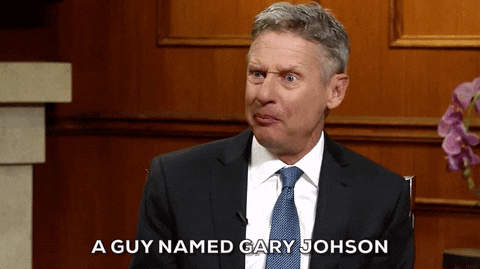Neither Johnson nor Stein cleared the necessary 15 percent polling hurdle to be included in the debates—Johnson is currently at 7.4 percent and Stein is sitting at 2.4 percent, according to RealClearPolitics’s polling averages. But the 10 percent of voters currently planning on voting for Johnson and Stein are very much on the minds of Hillary Clinton and Donald Trump
Forty-four percent of voters between the ages of 18 and 34 are voting for Johnson or Stein. That’s a number that Clinton, who is underperforming with young people (she’s at 31 percent with 18-to-34-year-olds), would like to decrease. Clinton has a better chance of converting these voters than older ones, who tend to skew conservative. Running in a dead heat with Trump, she needs any voting bloc she can get and young people should be her best bet. Expect her to stress her affinities with President Barack Obama, who is very popular nationwide but especially popular with young people. Also expect her to highlight policies that would particularly help young people, like tuition assistance.
Trump is in the opposite situation. There’s lots of evidence that suggests that the majority of Johnson/Stein voters lean towards Clinton; there’s also lots of evidence that suggests that Trump has a pretty low ceiling. In other words, upping the share of third party voters should benefit him and hurt Clinton. So his job is somewhat simpler. Unlike Clinton he doesn’t have to convert anyone. He just has to convince people not to vote for his opponent.
